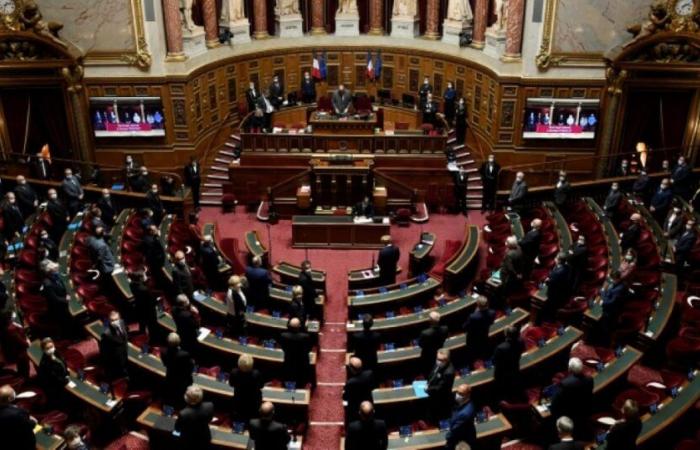Far from a fragmented National Assembly without a majority, the Senate scrutinized the State and Social Security budgets in committee on Wednesday, promising “a massive recovery” of public finances in “consistency” with the government's project by Michel Barnier.
Just rejected Tuesday by the deputies because too distorted for the government camp, the State budget for 2025, which targets 60 billion savings to reduce the deficit to 5% of GDP, is already on the table of the upper house .
The debates in public session will only start on November 25 – and from the 18th for the Social Security budget -, but the senators have already adopted a whole series of measures in committee on these two texts, at the initiative of the LR-centrist alliance which dominates the hemicycle.
“The state of budgetary emergency imposes on us a massive and unprecedented recovery of our public accounts”, launched at a press conference the general budget rapporteur Jean-François Husson, who claims to have already released “nearly four billion” of savings.
The spotlight is as much on the Senate because “this is where the budgets will be written”, summarize most of the figures of the High Assembly in chorus. Indeed, the common base is very broad, with nearly five parliamentary groups in support and around 250 senators in support of the 348 in the hemicycle… So many arguments which plead for a much more calm examination than at the Assembly for Michel Barnier and his Bercy ministers.
– “Respect each other” –
“Here, we know how to listen to each other and respect each other,” the Prime Minister told the senators in recent weeks, promising to “examine” their proposals.
The senatorial right therefore intends to take advantage of this opportunity to make its mark, while striving “to maintain the coherence” of the initial text, insists Jean-François Husson.
He advocates a “reasonable effort” as opposed to the “fiscal frenzy” observed according to him in the National Assembly, whose benches were largely neglected during the debates by the troops of the Barnier coalition.
“It is true that the configuration of the Assembly is not conducive to reaching majorities. Here, we will be able to vote on painful but necessary decisions… Even if we will not only make friends,” adds the senator. centrist Elisabeth Doineau, who reports the Social Security budget.
Among the senatorial proposals adopted in committee, the creation of a “solidarity contribution” of seven hours worked free of charge per year for each employee, to be implemented by companies. Objective: 2.5 billion euros for Social Security.
In addition to a slightly increased tax on sugary drinks, senators also intend to act on tobacco taxation, to increase the price of a packet of cigarettes to 13 euros.
– Communities cajoled –
On the sensitive issue of reducing reductions in employer contributions, supposed to bring in four billion euros, the Senate reduced the system, bringing it to three billion, by choosing in particular to maintain the exemptions at the level of the minimum wage.
As for the indexation of pensions to inflation, the LR-Barnier compromise announced by the leader of LR deputies Laurent Wauquiez will be ratified.
On state spending, the Senate promises cuts: elimination of the Universal National Service (SNU), reduction of the budget for teacher training, reduction of funds allocated to State Medical Aid (AME) for undocumented immigrants, merger of state operators…
Taken together, these measures could, according to the senatorial majority, compensate for the elimination of the increase in the electricity tax, which was to bring 3.4 billion euros to the government but was unanimously rejected in committee. of Finance. The latter also approved an increase in the gas tax, for one billion.
The “Chamber of Territories” also hopes to cajole local authorities, targeted by the budget, to the tune of at least five billion euros. “We will work to ensure that these efforts are drastically reduced,” promised the new leader of senators LR Mathieu Darnaud in an interview with L’Opinion.
As for the left, a minority in the upper house, it is preparing its weapons for the examination in public session. “We know that the Senate is at the center of the political game, so we will assume a real opposition position here,” points out the socialist Thierry Cozic, who intends to propose “an alternative budget”.






